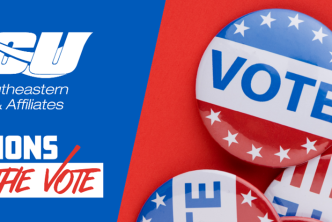Two weeks ago, Florida Congressmen Dennis Ross (R-FL) and Alcee Hastings (D-FL), as well as others, introduced a resolution to utilize the Congressional Review Act (CRA) to repeal the Consumer Financial Protection Bureau (CFPB) Small Dollar Loan rule. The LSCU has sent letters to both our Alabama and Florida congressional delegations expressing its displeasure with this resolution and asking them not to support the repeal. We have also asked CUNA to oppose the resolution and have been told they also do not support the CRA resolution of disapproval.
According to the Pew Charitable Trust, the average payday loan customer paid $520 in fees annually to repeatedly borrow $375, trapping borrowers in an endless cycle of debt. The final rule, issued in October but not published until Nov. 17, aimed at cracking down on predatory lending and this cycle of debt created by payday lenders. When the rule was finalized, the LSCU was pleased to see that the CFPB had carved out an exemption for the National Credit Union Administration’s (NCUA) Payday Alternative Loan (PAL) program. From talking to credit unions, we know the PAL program is not perfect, but we have reached out to the NCUA to gauge their interest to work cooperatively with the industry to improve the program so more credit unions would be willing to offer an affordable alternative.
Consumer advocates waited nearly five years for the CFPB to take action on an industry that targets the poor and our brave service men and women. The LSCU continues to work closely with a coalition of community groups to address predatory lending in Alabama, which has more payday lenders per capita than any other state. While Florida’s laws are more protective, we still find predatory lenders targeting many Floridians, particularly the large population of active and retired military.
The payday lending industry has grown into a powerful political force, and it will take the efforts of many to enact meaningful reforms. With the leadership of CFPB in flux, the payday lending lobby can be expected to attempt to alter the rule prior to it becoming fully effective in 20-months. The CRA bill is just one tactic to roll back the rule. As the process moves forward, the LSCU will continue to urge CUNA, leagues, and credit unions to work cooperatively to fight any attempts to invoke the Congressional Review Act, or water-down these necessary reforms.
Where’s Patrick: This week is full of board meetings in Tallahassee as we look to close out the year and gain final approval for our 2018-20 budget and strategic plan. To see my tentative schedule for the next two weeks, visit the LSCU Information for Credit Unions’ webpage.





